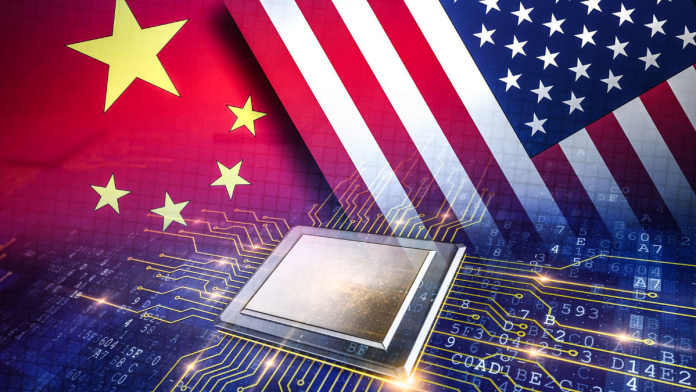Two Chinese nationals have been charged in the United States for illegally exporting some of the world’s most advanced AI computer chips to China. These chips, developed by Nvidia, are protected under strict U.S. export laws. The accused individuals—Chuan Geng and Shiwei Yang—allegedly bypassed these laws by running a smuggling operation through a small California-based company.
Authorities say this illegal export scheme spanned several years and involved millions of dollars’ worth of technology that could be used for artificial intelligence and supercomputing. The case has drawn major attention as the U.S. works to prevent cutting-edge American technology from reaching China.
Massive AI Chip Smuggling Operation Uncovered
The U.S. Department of Justice (DOJ) announced the charges on Tuesday. Geng and Yang were both involved with a company called ALX Solutions. According to court documents, the company shipped Nvidia’s restricted chips, such as the H100 and GeForce RTX 4090, to China without permission.
China accused of weaponizing students to police UK university discussions
The chips are known for powering AI applications and are subject to U.S. export controls. The government has limited who can buy and ship them, especially when it comes to buyers in China.
The U.S. Department of Justice says ALX Solutions disguised the final destination of the products by first sending them to other countries like Singapore and Malaysia. These countries acted as stopovers, helping to hide the fact that the chips were actually meant for China.
How the Scheme Worked
From October 2022 to July 2025, the company shipped multiple packages overseas. Although the goods were sent to addresses in Singapore and Malaysia, investigators found that the real buyers were in China. The payments, too, came from firms in Hong Kong and mainland China—including a $1 million payment in January 2024.
In one case, ALX Solutions told Nvidia supplier Super Micro Computer that a $28.4 million order was meant for a client in Singapore. However, that client did not exist at the listed address, and U.S. officials could not confirm that the chips ever arrived in Singapore.
In December 2024, U.S. customs checked a shipment and found restricted chips inside. The U.S. Department of Justice confirmed that ALX Solutions, along with Chuan Geng and Shiwei Yang, never applied for or received the licenses required to export these chips.
Arrests and Legal Action
Shiwei Yang was arrested on Saturday. Chuan Geng turned himself in soon after. Both appeared in federal court in Los Angeles on Monday. If found guilty, they could face up to 20 years in prison.
US Tariffs Narrow Cost Gap, China Plus One Strategy Under Pressure
Court documents reveal that Geng was responsible for handling the company’s finances, while Yang worked as the company secretary. Authorities also stated that Yang was living in the U.S. illegally, having overstayed her visa. The third member of the company—listed as the CEO—was not named in the court filings.
The company, ALX Solutions, doesn’t appear to have a public website. However, a cloud services site named ALX-Cloud claims to be a subsidiary of it.
In a statement, Nvidia said that it works with trusted partners and all products are sold under strict compliance rules. A spokesperson said that any illegally diverted products will not receive support or updates from the company.
Super Micro, another company named in the case, confirmed it follows all U.S. export laws and said it would assist in any investigation. It declined to comment further due to the ongoing legal case.
The U.S. Department of Justice has not yet revealed the identities of the companies in China that received the chips. Investigations are still underway.


